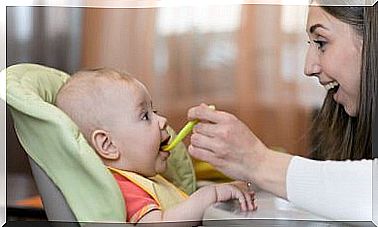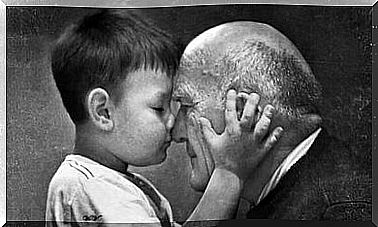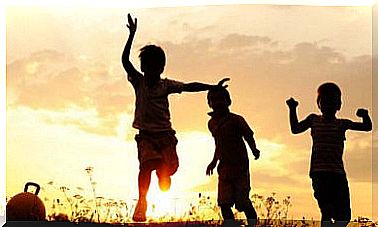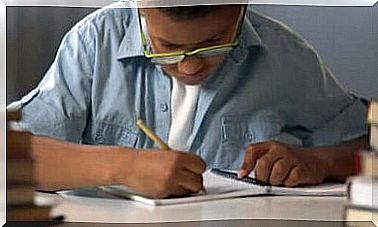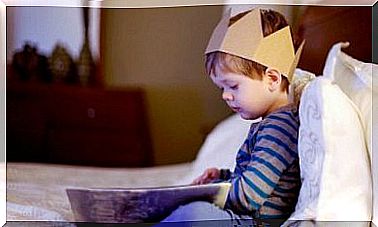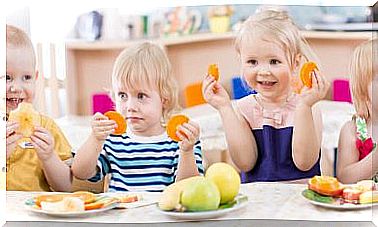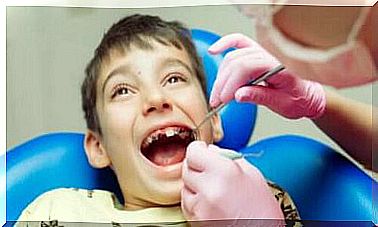How To Deal With Children Who Hit And Bite?
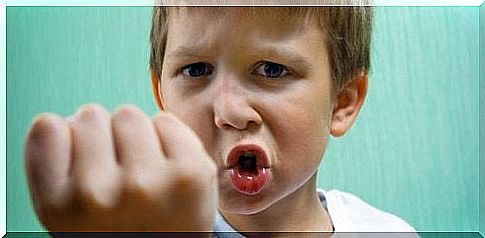
Why are there children who hit others? How to deal with children who hit and bite? These questions often pop up in the minds of many fathers and mothers concerned about their children’s seemingly aggressive reactions.
Aggressiveness in children
The first thing that must be highlighted is that this aggressiveness is natural and normal in children. It is instrumental aggressiveness, because the child has a goal: to get something he wants. For example, if a child wants a toy that someone else has, they will hit, bite or push to get it. Your intention is not to hurt the other child, but to take the toy.
The young child does not yet have a complete mastery of language skills. This condition is combined with the fact that she lives a phase of her development that is focused on herself. This phase is called the egocentric stage and prevents you from meeting the needs of others.
To communicate what he wants and what he feels, the child will test different mechanisms. But some of these mechanisms are not suitable for a happy coexistence. When the child does not know otherwise, he communicates by hitting and biting.
Knowing how to act with children who hit and bite is very important to promote healthy emotional development. This is the perspective in which the adult will position themselves to teach the child who beats how to socialize, and how to communicate their desires.
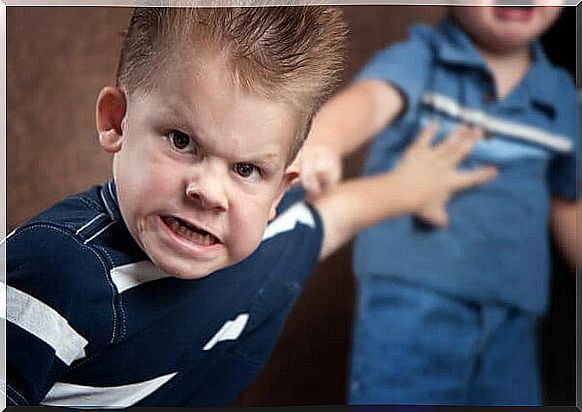
Tips for Dealing with Hitting and Biting Children
The moment the aggressive episode occurs, action must be taken. The responsible adult – the teacher, the mother, the father, the nanny – will reassure the child and talk to him. It will let her know that you understand what happened, and that your attitude was inappropriate.
If the child is not able to communicate his emotions in words, the adult will do it for him. That’s when you say phrases like: “You’re mad, aren’t you?”. In this way, the child will feel understood. Then will come the consequence. The adult will clearly say, “You must not hit or bite anyone, because it hurts.”
reparations and penances
Once the child is calmer, he will need to understand that his reaction deserves a penance, or a restorative action: “I understand that you behaved wrongly because your colleague did not give you what you wanted. The problem is, you shouldn’t hit or bite anyone. We’ll call your colleague, and you’ll apologize.”
proper teachings
- A very important step that should not be omitted is to teach the child that there are alternative ways to express his desire: “When you want something, you must say it in words, kindly”. It’s about making the child understand that there are other ways to communicate his irritation and desires.
- It is also an opportune time to encourage the learning of waiting and patience. “If another child is playing with that toy you want, you can wait for them to finish so they can play.”
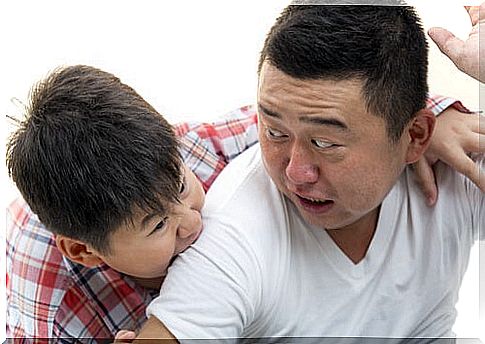
Some “no” to keep in mind
- When intervening in the situation of a child who reacts aggressively, the adult must control his emotions. This mainly involves not screaming or getting angry. If the adult acts with violence, the child will learn violence.
- Pressured, and constantly rushed by the pace of current life, many parents tend to miss a few episodes when their children hit. Quite often, in order to quickly calm the little one’s anger, the daddy or the mommy allow themselves to be manipulated and grant what the child wants. This is a serious mistake, as the child will get used to the idea that with aggressive behavior he can get what he wants. Not giving in to capricious demands takes more time and dedication. But it’s the proper attitude to bring up spanking kids.
take care of emotional education
Correct emotional development needs adult modeling and intervention. Emotional education is a fundamental aspect of early childhood education. And this will allow the child to achieve the right level of emotional intelligence. A warm and emotionally balanced environment is the foundation. The child learns from role models, and his family is always the main role model. The little one spends several hours at school, so it is necessary to demand a favorable climate without violence.
Developing emotional skills will allow children who hit and bite to get through this step. They will be able to assimilate and understand their own emotions and those of others, and acquire the skills necessary to control their own moods. Their integration into society will depend, to a great extent, on this factor.
